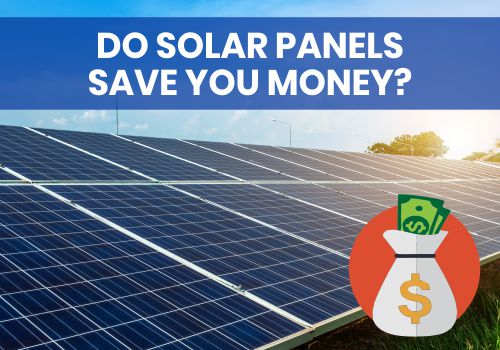
With the increase in energy demands worldwide and the growth of environmental issues, a lot of home users, businesses, and even farmers are already branching out to alternative energy solutions. Solar energy is one of the most popular options. Solar panels, which are usually placed on roofs and in open fields, catch sunlight and turn it into electricity. But there is a big question: Are solar panels worth it?
Let’s look at the economics, the environmental impact, and the broader implications, especially in agriculture and machines like tractors, to see if solar panels deserve the hype.
Long-Term Savings and ROI
Solar panels begin to pay off as soon as they’re installed, saving or eliminating electricity bills. Over 20 to 30 years—the normal lifetime of a solar panel—users can see tens of thousands of dollars worth of savings.
The ROI improves even more in places with ample sunshine and high electricity prices. On average, it takes 7 to 10 years for most solar panel systems to pay themselves off. From then on, every watt of electricity produced is practically free aside from occasional repairs.
Solar Panel for Agriculture: A Blessing for Farmers
Another sector that is often overlooked but is indeed making a significant impact with solar panels is agriculture. Many farmers are now adopting solar technology for their farms — not only to power homes and barns, but also to charge and power electric tractors and irrigation systems.
With diesel prices climbing and the move towards sustainable farming, solar-powered tractors are getting a boost. Farming companies are now building electric tractors that can charge up from solar panels, which reduces fuel bills and carbon footprints. This capability serves as a huge draw for modern farmers, making solar panels a very attractive investment.
Environmental Benefits
Aside from the money, the alternative energy benefits provided by solar panels are significant. The average solar panel system can offset several tons of carbon dioxide emissions per year. In its lifetime, a solar system can displace the emissions equivalent of driving hundreds of thousands of miles in a gas-powered car or of running a diesel-powered tractor for years.
In a time of climate change, converting to solar energy is a tangible move in the direction of climate change, greenhouse gases, and fossil fuel dependence.
Grid Resilience and Energy Independence
The ability to generate your own electricity is one of the greatest benefits of solar panels. This creates independence from utility companies and serves as a buffer during power outages. Solar panels, combined with battery storage systems such as Tesla Powerwall or similar products, can provide 24/7 electricity even when the grid is down.
In rural places where the power grid is weak, this self-sufficiency can be a huge advantage. Solar panels allow farmers to power their tractors, irrigation systems, and processing equipment, enabling them to continue working through blackouts.
Challenges and Considerations
Although there are many advantages, solar panels are not without obstacles. Even though the cost is decreasing, it is expensive for many people at the beginning. Not every home or property gets enough sunlight, especially in places with lots of cloud cover or limited roof space.
It is also true that solar panels degrade over time, but slowly, at a rate of about 0.5% annually. That means after 25 years, panels are still producing around 87% of their original capacity.
Maintenance is also an issue, albeit a minor one. Dirt, bird droppings, and debris can decrease efficiency if panels aren’t regularly cleaned.
Are They Worth It?
So, are solar panels a good investment? The answer to this is a wholehearted yes, and in many respects, based on better long-term savings, sustainable development, environmental positive impact, and energy independence.
For farmers, the value case is even stronger. The option of running electric tractors, lessening fuel dependence, and the option of continuing operations off-grid represent another layer of financial and operational benefits. As the world moves to adopt more sustainable practices, it only makes environmental sense for an energy source to be solar; It also makes economic sense.
Conclusion
With the growth of the green energy movement, solar panels are more than just a green choice; they are an investment for homeowners, businesses, and most importantly, for those in the agricultural sector. Solar energy is expected to become even more mainstream as technological efficiencies improve and costs keep coming down.
Whether you’re hoping to slash your electricity bill, reduce your carbon footprint, or keep your electric tractor powered up, solar panels are a bright and sustainable future.


